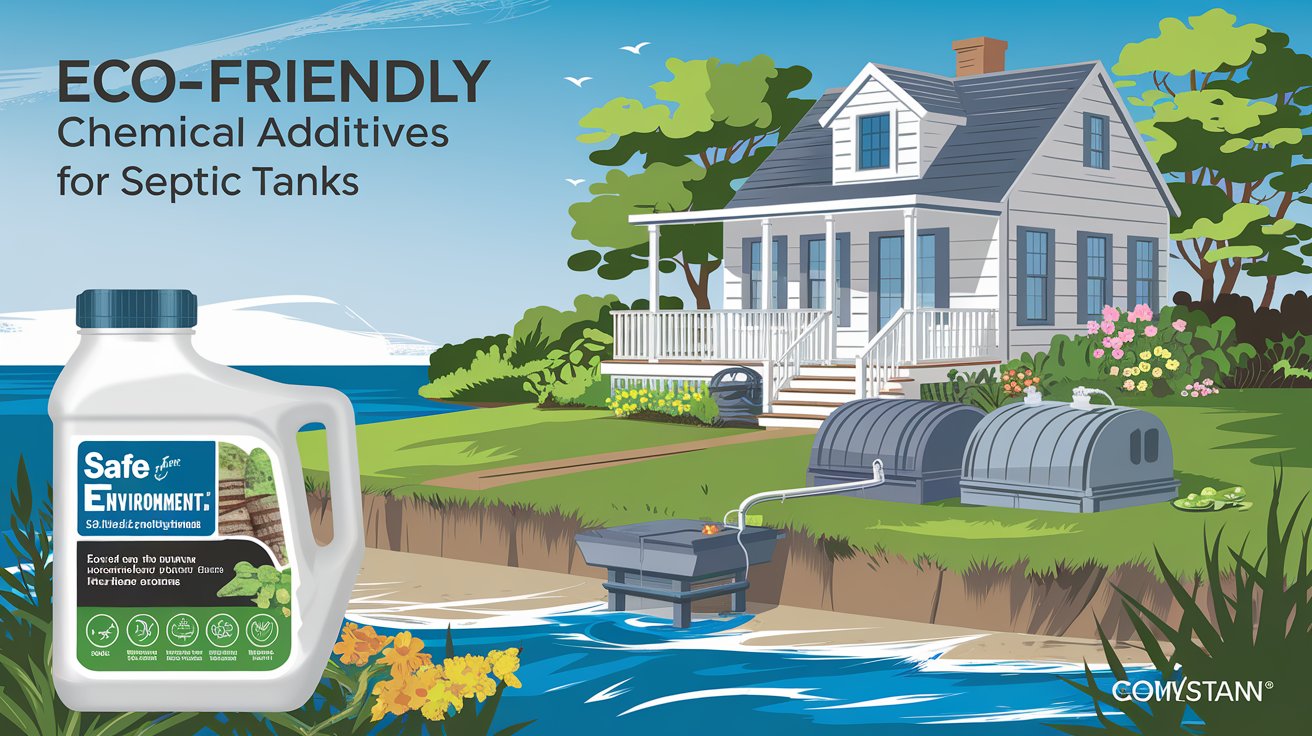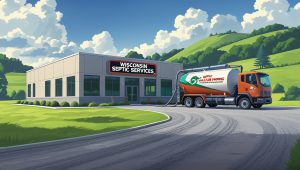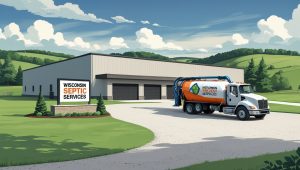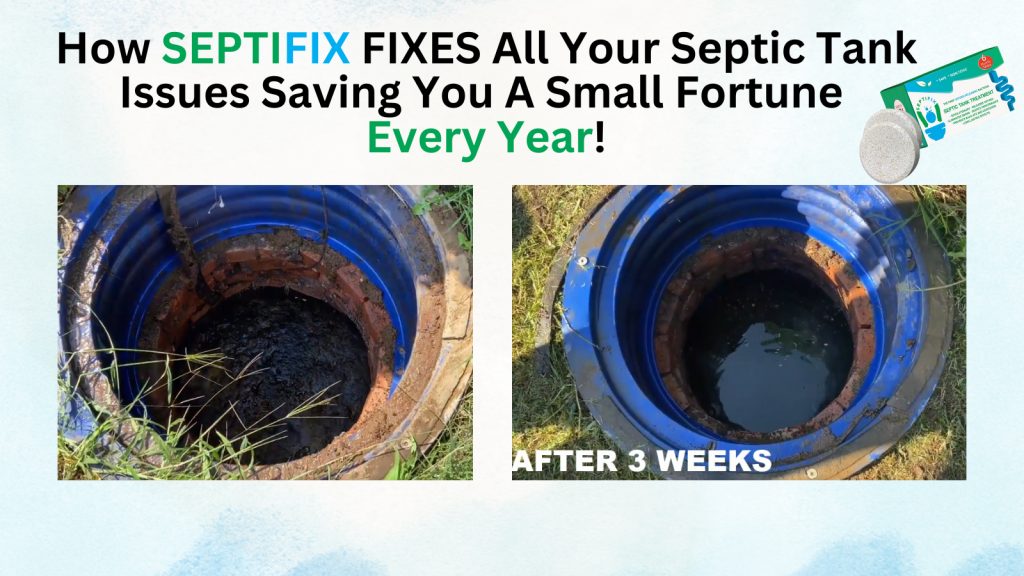Chemical additives for septic tanks play a crucial role in maintaining the efficiency and longevity of these systems. Understanding their pros and cons is essential for homeowners to make informed decisions about their septic tank maintenance. This article will delve into the various types of chemical additives, their benefits, potential risks, and best practices for use.
Table of Contents
- Understanding Chemical Additives
- Pros of Using Chemical Additives
- Cons of Using Chemical Additives
- Best Practices for Using Chemical Additives
- Case Studies and Research Findings
- FAQs about Chemical Additives for Septic Tanks
- Septifix
- Septic Permit Links by State
Understanding Chemical Additives
Chemical additives are substances added to septic systems to enhance the breakdown of waste materials. They can be categorized into two main types: chemical additives and biological additives. Chemical additives often include harsh substances that may disrupt the natural balance of bacteria in the tank, while biological additives consist of beneficial bacteria and enzymes designed to support the septic system’s health. Common types of chemical treatments include:
- Hydrogen Peroxide: Often used for its oxidizing properties, it can help break down organic matter but may also disturb soil structure if misused.
- Formaldehyde: This chemical is effective at controlling odors but can be toxic to beneficial bacteria.
- Baking Soda: A milder option that can help maintain pH levels but may not be as effective as other treatments.
- Alum: Used primarily for its coagulating properties, it can assist in settling solids but may have environmental repercussions.
Pros of Using Chemical Additives
Enhanced Breakdown of Solids
Chemical additives for septic tanks can significantly improve the breakdown of solids within the tank. These additives work by introducing specific enzymes and bacteria that accelerate the decomposition of organic matter. As a result, waste is broken down more efficiently, helping to prevent clogs and backups. This enhancement not only leads to a more efficient system overall but also reduces the need for frequent pumping. Homeowners can enjoy peace of mind knowing that their septic systems are functioning optimally, minimizing the risk of costly repairs and disruptions.
Prevention of Clogs
By promoting better waste decomposition, chemical additives can effectively reduce the frequency of clogs in septic systems. Clogs can lead to significant issues, including slow drainage and potential system failures, which can be costly to repair. Regular use of these additives helps maintain a balanced microbial environment, ensuring that waste is processed smoothly. Over time, this proactive approach can lead to fewer maintenance issues and a more reliable septic system, ultimately saving homeowners both time and money.
Improvement in Overall System Efficiency
Many users report that their septic systems function more smoothly after incorporating chemical additives into their maintenance routine. These products enhance the natural processes within the tank, leading to improved waste breakdown and nutrient cycling. As a result, homeowners may experience fewer maintenance issues over time, such as backups or slow drainage. This increased efficiency not only contributes to a healthier septic system but can also extend the lifespan of critical components, reducing the need for premature replacements and repairs.
Control of Odors
Certain chemical additives are specifically formulated to control unpleasant odors emanating from septic tanks. These products work by neutralizing odor-causing compounds and promoting a healthier microbial balance within the tank. For homeowners, this means a more pleasant environment around their property. Effective odor control is especially important for homes located near outdoor living spaces or gardens, where strong smells can be particularly disruptive. By using chemical additives designed for odor management, homeowners can maintain a comfortable and inviting atmosphere while ensuring their septic systems operate efficiently.
Cons of Using Chemical Additives
- Potential Harm to Beneficial Bacteria
While some chemicals can aid in waste breakdown, others may harm the beneficial bacteria essential for a healthy septic system. This disruption can lead to imbalances that affect system performance, resulting in more severe issues down the line. - Environmental Concerns
The runoff from chemical treatments poses environmental risks, potentially contaminating groundwater or local water sources. Chemicals like formaldehyde and sulfuric acid are particularly concerning due to their toxicity and corrosive properties. - Cost Implications
Regular use of chemical additives can add up financially over time, raising questions about their overall effectiveness compared to traditional maintenance practices. Homeowners must consider whether the benefits justify the costs involved. - Risk of Corrosion
Harsh chemicals may corrode plumbing components and cause long-term damage to the septic system. This corrosion can lead to leaks and costly repairs. - Ineffectiveness in Healthy Systems
Many experts argue that properly designed and maintained septic systems do not require additional additives at all. Naturally occurring bacteria within human waste are typically sufficient for effective waste breakdown.
Best Practices for Using Chemical Additives
If you decide that chemical additives are necessary for your septic system, consider the following best practices:
- Choose Wisely: Opt for products that contain natural enzymes or bacterial strains rather than harsh chemicals. Natural enzyme-based additives are derived from safe sources and work by accelerating the breakdown of organic matter.
- Follow Instructions: Always adhere to manufacturer guidelines regarding dosage and application methods to avoid overuse or misuse.
- Monitor System Performance: Keep an eye on your septic system’s performance after using additives; if problems persist, consult a professional.
- Consider Alternatives: Explore biological additives such as yeast or natural bacteria that can enhance microbial activity without disrupting the system’s balance.
Case Studies and Research Findings
Research indicates mixed results regarding the effectiveness of chemical additives in septic systems. For instance, some studies show improved breakdown rates with certain biological products, while others highlight potential risks associated with long-term use of harsh chemicals. Consulting with professionals and reviewing case studies can provide valuable insights into best practices for maintaining your septic tank without relying heavily on chemicals. In one case study published by Small Flows Quarterly, researchers found that while enzymatic products could reduce oil and grease levels in tanks under specific conditions, they also noted that excessive use could lead to increased solids entering drainfields due to anaerobic decomposition processes. Therefore, homeowners should weigh these factors carefully when considering additive use.
Conclusion
In summary, while chemical additives for septic tanks can offer benefits such as improved waste breakdown and odor control, they also come with significant risks that must be carefully considered. Homeowners should weigh these factors when deciding whether to incorporate them into their maintenance routine.
FAQs about Chemical Additives for Septic Tanks
How can I tell if my septic system needs help?
Signs that your system may need attention include slow drains, unpleasant odors, or frequent backups. It’s best to consult a professional before resorting to additives. Get expert advice on septic system issues .
Do chemical additives really improve septic tank performance?
While some products claim to enhance performance, the EPA advises against using chemical additives as they can disrupt the natural bacterial processes already present in healthy septic systems. Learn more from the EPA .
What types of chemical additives are available for septic tanks?
Common types include hydrogen peroxide, formaldehyde, and baking soda. However, many experts recommend caution as these can harm beneficial bacteria and the overall system. Read about different types of additives .
Are biological additives better than chemical ones?
Biological additives like enzymes and bacteria are often seen as safer alternatives to chemical additives. They can help maintain a healthy bacterial balance in septic systems, but their necessity depends on the specific conditions of your system. Explore the effectiveness of biological additives .
Can using additives eliminate the need for septic tank pumping?
No, no amount of additive can replace the need for regular pumping. Sludge buildup is inevitable and requires professional removal regardless of additive use. Find out more about maintenance requirements .
What are the risks associated with using chemical additives?
Risks include potential harm to beneficial bacteria, environmental contamination, and damage to the septic system itself due to corrosion or clogging. Understand the dangers of chemical additives .
Septifix











